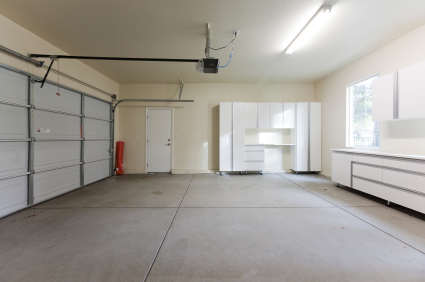Choosing the right garage door opener can make a world of difference in your daily routine. It’s not just about convenience; it also impacts your home’s security and energy efficiency. With various options on the market, understanding what to look for is crucial. In this guide, we’ll provide the steps to help you select the perfect residential garage door opener for your home.
Understand the Types of Garage Door Openers
If your opener is nearing the end of its lifespan, it’s time for replacements. Garage door openers come in various types, each offering distinct advantages:
- ⬥Chain Drive: These are the most common and are known for their reliability and strength. Chain-driven openers are powerful and suitable for heavy doors, but they can generate some noise.
- ⬥Belt Drive: Belt drives are quieter than chain drives and use a rubber belt to operate the door. They are great for homes with bedrooms above or adjacent to the garage.
- ⬥Screw Drive: These openers use a lifting mechanism that moves along a metal rod. They require less maintenance and are efficient but can be slower than the other types.
- ⬥Direct Drive: This type has fewer moving parts and operates quietly. The motor itself moves along the track, providing smooth and reliable operation.
Consider Your Residential Garage Door Weight and Size
Different openers have varying weight limits. Before choosing, check the weight and size of your garage door. Standard openers can handle most residential doors, but if you have a heavier or larger door, ensure the opener can accommodate it. Also, the more you use your garage door, the more wear and tear it will experience. So, if you open and close it frequently, a more durable opener will be a better choice.
Look for Safety Features
Safety is important when choosing a residential garage door opener. Here are some key safety features to consider during your garage upgrade:
- ⬥Auto-Reverse Mechanism: This feature stops and reverses the door if it detects an obstruction, preventing injuries or damage.
- ⬥Rolling Code Technology: This enhances security by changing the access code every time the opener is used, making it difficult for potential thieves to intercept.
- ⬥Emergency Release System: In case of power failure, this allows you to manually open the garage door.
Evaluate Power and Speed
The power of the opener, measured in horsepower (HP), determines how quickly and efficiently it can lift your door. Most residential garage doors require an opener with at least ½ HP. For heavier doors, consider models with ¾ HP or more. Speed also matters; a faster opener can save you time, especially if you use your garage frequently.
Think About Smart Features
Modern garage door openers come with smart technology, allowing you to control them remotely via your smartphone. Look for features such as:
- ⬥Wi-Fi Connectivity: This enables remote access and monitoring, so you can check if you left the garage door open while away.
- ⬥Voice Activation: If you have smart home devices, consider an opener compatible with voice commands for added convenience.
Check Warranty and Customer Support
A reliable garage opener warranty can save you money in the long run. Look for openers with at least a one to three-year warranty for parts and a longer warranty for the motor. Additionally, consider the manufacturer’s customer support reputation; responsive support can be invaluable if issues arise.
Choosing the Best Garage Door Opener
Selecting the right garage door opener involves understanding your needs and evaluating the available options. Additionally, older or worn-out openers may be at risk of break-ins or malfunctions. If your opener is nearing the end of its lifespan, it’s time for an upgrade. With the right choice, you’ll enjoy effortless access to your garage for years to come. Investing in a high-quality garage door opener can significantly improve your daily routine and overall home comfort.
Keeping it on Track: Maintaining Your Garage Door for Smooth Operation


